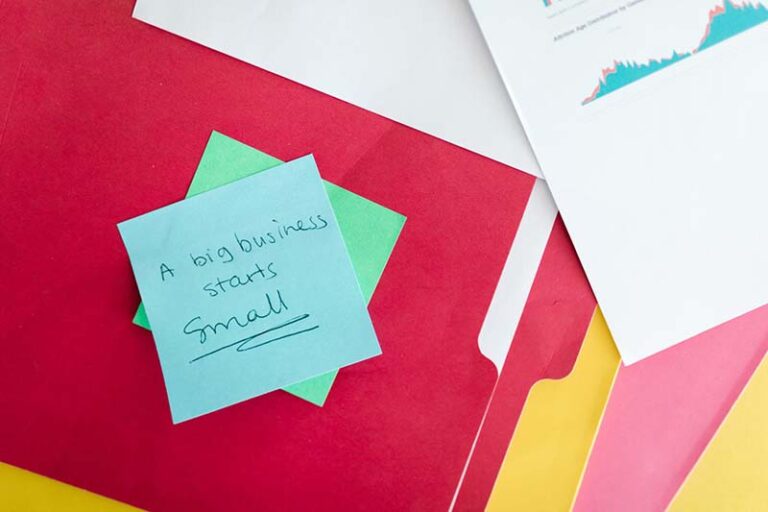The coronavirus has rocked the United States economy, with many experts claiming that this is the ‘weirdest’ recession in history. That’s because this recession wasn’t caused by war or a bubble burst – instead, it was caused by the “Great Lockdown.”1
When businesses were ordered to close nationwide, an estimated 22.2 million people were laid off or furloughed. Parents had to stay home with children as schools closed, restaurants had to shutter, and layoff employees and companies saw a drastic drop in revenue as only essential businesses were allowed to remain open.
While many will continue to face devastation until a vaccine is officially approved and life returns to normal, it is important to remember that hardship can also breed innovation. Losing your job might finally give you the push to start your own small business. Perhaps you’ve encountered a problem and invented a product that would solve it. The vulnerability we all face nowadays makes us realize how dependent we are on our employer for a paycheck to put food on the table or health insurance when our loved ones get sick.
Many Americans are discovering the independence that comes with working for oneself, which explains why the government reports that new businesses are being started at the fastest rate in more than a decade!2 New demands have spurred thanks to the opportunities to work from home, and many employers are looking to hire freelancers and contractors instead of in-house employees to cut back on some of the overhead costs.
It’s common sense to think that businesses started during a weak economy are more durable than those started during a great economy. If you want more proof than common sense, just think about all of the successful companies that were founded during a recession and had to overcome adversity from the very beginning.
General Motors was founded in September of 1908, amidst an economic recession
by Charles Stewart Mott and William Durant. In 1900, Mott owned a struggling bicycle business in New York. As the automobile began to rise in popularity, Mott used his engineering training to transform his business into a car parts manufacturer and began selling to companies such as Buick and Oldsmobile. In 1905, Durant asked Mott to open a factory in Flint, Michigan. Mott ended up moving
his entire business to Michigan, which quickly became the largest axle manufacturer globally, and together he and Durant founded GM.
Faced with the Great Depression of the 1930s, David Packard and William R. Hewlett decided that they would start their own business if they could not find jobs on their own. Hewlett-Packard was founded in 1937 by Packard and Hewlett. They tossed a coin in a Palo Alto garage to determine whose last name would go first in the company name.
As the United States battled the recession following the Korean War, Keith Kramer and step-father Matthew Burns founded Insta-Burger in 1953 in Jacksonville, Florida. Their fast burger concept was inspired by the relatively new McDonalds in California. Today, Insta-Burger is now known as Burger King.
In 2007, Brian Chesky and Joe Gebbia couldn’t afford the rent on their San Francisco apartment, so they decided to rent out their loft to make ends meet. Chesky and Gebbia created a basic website called Airbed & Breakfast, which had pictures of their loft-turned-lodging containing three air mattresses and the promise of breakfast every morning. Each of the three air mattresses was rented for $80, and Chesky and Gebbia began to receive emails from people worldwide asking when this site would be available in other cities. Airbed and Breakfast is now Airbnb.
Other companies founded during a recession include Apple,3 Microsoft, Netflix, CNN, Hyatt Regency, Trader Joe’s, Mailchimp, Warby Parker, Electronic Arts, Uber, Square, Groupon, and Venmo. Sure, Steve Jobs and Bill Gates are now household names, but it wasn’t always that way. Every successful person started somewhere, and if you are ready to go out on your own, there is no better time than the present.
Whether you want to be a freelancer, contractor, or small business owner, you need to make the right decisions for your financial future. When you start your own small business, there are fun decisions to make, like naming your business, color scheme, branding, logo design, and marketing. But there are also a ton of decisions that may seem dull but are equally as important, if not more. For example, what is the best small business insurance for your company? Are you covered if your business is robbed in the middle of the night? What type of health insurance will you buy for you and your employees? Do you even have to buy insurance for your employees? What bank will you use? Do you need a loan? Where do you even find a good business loan? Since you don’t have an employer-sponsored 401(k), do you have a plan in place for retirement?
These questions can seem daunting and overwhelming, but you can rest easy knowing that Woligo has you covered.
Let’s start at the very beginning, with insurance. As a small business owner, one of the most important decisions you will make is what insurance to carry. Insurance is required in some instances and highly recommended in others. Many states require some form of small business insurance, so it is important to ensure you comply with all state requirements. Contracts you enter into might also require insurance, such as renting office space from a landlord or loan and client agreements.
Although not required by law, different kinds of small business insurance are highly recommended to protect you, your management, your employees, and your customers. You also want to make sure your business is protected in the event of lawsuits, natural disasters, accidents, data breaches, vandalism, robbery, and more.
As a general rule, you should get insurance for anything you wouldn’t be able to pay for out of pocket. Let’s take a look at some of the best small business insurance options.
General Liability Insurance
Who needs it? All businesses (even home-based ones).
What does it do? This coverage protects against financial loss due to bodily injury, property damage, medical expenses, libel, slander, defending lawsuits, and settlement bonds or judgments. The policy provides both defense and damages for you, your employees, or your products or services.
Business Interruption Insurance
Who needs it? Any business that wants a back-up plan.
What does it do? This coverage is designed to protect you from the loss of income in the event you have to close your business or stop production temporarily.
Product Liability Insurance
Who needs it? Businesses that manufacture, wholesale, distribute, and retail a product.
What does it do? This coverage protects against financial loss as a result of a defective product that causes injury or bodily harm.
Business Owner’s Policy (BOP)
Who needs it? Most small business owners, but especially home-based business owners.
What does it do? A business owner’s policy is an insurance package that combines all of the typical coverage options into one bundle, such as business interruption insurance, property insurance, car insurance, liability insurance, and crime insurance. This policy simplifies the insurance buying process and can save you money.
Business Auto Insurance
Who needs it? Any business that has vehicles registered to the company.
What does it do? This coverage protects vehicles that carry employees, products, or equipment. With commercial auto insurance, you can cover all of your work cars, SUVs, vans, and trucks from damage and collisions. If you do not have company vehicles, but employees drive their own cars for company business, you should have non-owned auto liability to protect the company in case the employee does not have insurance or has inadequate coverage. Sometimes the non-owned can be added to a BOP policy.
Commercial Property Insurance
Who needs it? Businesses with a significant amount of property and physical assets.
What does it do? This coverage protects your business property against loss and damage due to events such as fire, smoke damage, wind and hailstorms, vandalism, and theft.
Worker’s Compensation
Who needs it? Any business that employs W2 employees (this insurance is required in almost every state, but requirements and penalties differ).
What does it do? This coverage is for employees who are injured on the job and provides benefits such as wage replacement and medical benefits. In exchange for these benefits, the employee gives up his rights to sue his employer for the incident. As a business owner, it is imperative to have worker’s compensation insurance because it protects you and your company from legal complications.
Professional Liability Insurance aka Errors and Omissions Insurance
Who needs it? Businesses that provide services to customers.
What does it do? This coverage provides defense and damages for failure to or improperly rendering professional services, including malpractice, errors, and negligence. Accountants, lawyers, notaries, real estate agents, insurance agents, and hair salons are just some examples of the many business owners, freelancers, and contractors that should carry this insurance.
Cyber Insurance
Who needs it? Any business that stores sensitive or non-public information.
What does it do? This coverage provides protection against a loss if a breach occurs either electronically or from a paper file. If the business stores sensitive or non-public information about employees or clients on their computers, they are responsible for protecting that information.
Home-based Business Insurance
Who needs it? Self-employed professionals and businesses that are run out of the owner’s personal home.
What does it do? This coverage is added to homeowner’s insurance as a rider and can offer protection for a small amount of business equipment and liability coverage for third-party injuries.
Renter’s Insurance
Who needs it? Self-employed professionals and businesses that are run out of the owner’s rented home.
What does it do? Renter’s insurance is a sub-set of homeowner’s insurance, which applies only to those who rent their home. The coverage protects against damage to the physical property, contents of the property, and personal injury within the home.
The different small business insurance options and coverage can be confusing and seem redundant, but Woligo has resources to help you sort through it all. As a small business owner, freelancer, or contractor, you have a lot on your mind, which is why it is important to setup and protect your business before the doors even open. Insurance can save you time, money, and stress, leaving you with peace of mind to focus on the more important things like day-to-day operations, client acquisition, and making money!
Sources:
- https://www.cnn.com/2020/06/10/economy/recession-history/index.html
- https://www.wsj.com/articles/is-it-insane-to-start-a-business-during-coronavirus-millions-of-americans-dont-think-so-11601092841#:~:text=The%20pandemic%20forced%20hundreds%20of%20thousands%20of%20small,has%20been%20busy%20every%20day%20since%2C%20she%20said.
- https://www.msn.com/en-us?refurl=%2fen-us%2fmoney%2fcompanies%2f14-successful-companies-that-started-during-us-recessions%2fss-BB12WhFv


